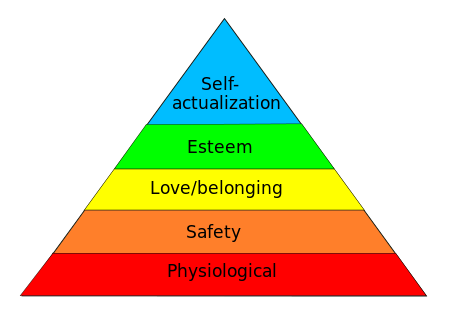Are you a business owner, senior executive, salesperson, consultant, freelancer, or in a similar entrepreneurial or leadership career? If yes, this post is for you.
If you’re already crushing your goals, no need to read on.
However, if you wish things were easier and just simply going better for your business or career, you need to read this.
I have 3 pieces of advice for you.
But if you’re a person who actually needs the advice, I bet you’re going to disagree with me.
#1: People are just trying to help you. Show some gratitude.
In your day to day dealings with people, be they employees, co-founders, co-workers, strategic partners, vendors, shareholders, investors, or service providers, for the most part they are actually trying to help you. Yes, they have their own agenda too, but generally speaking they’re human and humans like to help other humans.
Occasionally, you probably find that people do things that annoy you, waste your time, or clog up your already overflowing email inbox. Please, please consider that they may actually be going out of their way to try and help you.
Okay, that’s not the always the case, I realize. Sometimes, they are actually being selfish and ignorant. But, regardless… why not include the word “thanks” more often in your emails or conversations, even if the thing they did isn’t all that helpful to you?
Isn’t it better to have more people “on your side” than fewer?
Why bother annoying people with a terse response, or worse yet, no response at all and pushing them away?
#2: Be more open-minded to other people’s opinions and advice.
Let’s face it. Most entrepreneurs, business owners, senior executives, consultants, and salespeople are strong-minded, smart, and confident people. They know a LOT of answers to problems.
However, if you’re not currently crushing your goals and living the dream, maybe it’s time to be more open-minded to other people’s opinions and advice?
Stop dismissing someone else’s opposing opinion as soon as it leaves their mouth.
Instead, pause, take a deep breath, and ask them, “Hmm… that’s not what I would have thought. Why do you think that?”
#3: Stop blaming others when something goes wrong.
I’m sure you can think of many times when an interaction or a project with another person either inside or outside your company has gone poorly or frustrated you because it didn’t got the way you wanted it to.
There is no value as an entrepreneur or business leader to immediately blame the other person for the situation going off the rails.
Allow me to repeat myself and give some straight talk here… there is ABSOLUTELY NO VALUE to you as a leader in blaming others either publicly, privately, or in your own mind.
There is ONLY value in learning from failures. Rather than blaming others, you need to start looking inward first. Even if you’re absolutely convinced it’s not your fault, the only valuable response is to ask yourself,
“What could I have done differently to help improve the outcome of this situation.”
Blaming others is a waste of time and energy, both of which are the most valuable assets in your personal and business life.
But what about you, Craig?
If you know me personally, you know I have been guilty many times of all of the above. However, with my new positive outlook, I am striving to improve my attitude and behaviour in all three of these areas.
What about you? What are you going to do differently in 2017?



